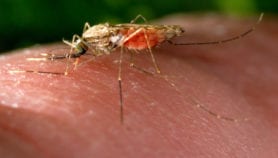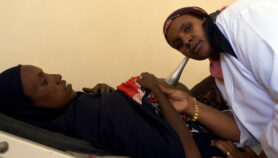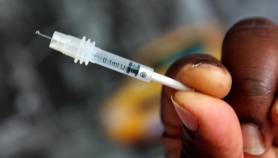Send to a friend
The details you provide on this page will not be used to send unsolicited email, and will not be sold to a 3rd party. See privacy policy.
Business leaders from India, Sub-Saharan Africa and the United States have joined forces to tackle a wide range of global health issues in the developing world and accelerate the translation of research into life-saving products.
Launched in New York this week (15 May), the MDG Health Alliance (MDGHA) aims to leverage established business networks in cooperation with governments, non-governmental organisations, academic and financial institutions to accelerate progress towards the health-related Millennium Development Goals (MDGs).
Each of alliance’s seven ‘pillars’ is led by experienced business leaders, and is dedicated to tackling a specific problem by 2015: halving the deaths of children under five, and of women during childbirth; reducing malaria deaths and mother-to-child HIV transmission to near-zero; saving one million lives from tuberculosis; recruiting and training one million new health workers; and providing universal access to reproductive health.
The MDGHA — which currently includes more than 40 different companies — will operate in an number of developing nations. But it will focus its resources on the Democratic Republic of Congo, Ethiopia, India, Nigeria and Uganda, countries with the highest rates of child and maternal mortality.
"I don’t think it is possible to tackle the big issues of global health without connecting businesses together," Jeffrey Walker, chair of the MDGHA’s Frontline Health Workers Pillar, told SciDev.Net.
He added that private businesses have extensive production, distribution and marketing networks at their disposal, which are particularly suited to getting health services and products to where they are most needed.
The alliance’s main focus will be turning research into life-saving products and providing health services. Capacity building, identified as a fundamental ingredient for success at Forum 2012 in South Africa, is also "a big part" of the alliance’s ethos, Walker said.
Business councils to be set up in India and several African countries will establish the networks necessary for developing local solutions to health issues.
As long as the MDGHA was genuinely committed to building the capacity of developing nations in solving health issues, the initiative was "a step in the right direction" said Carel Ijsselmuiden, executive director of the Council on Health Research for Development.
But he cautioned that the alliance’s targets were overly ambitious and, without proper evaluation tools to gauge success, were largely "meaningless". The three-year time-frame set out to achieve these goals was also far too short, he added.
"Before companies can set up shop in many developing countries, changes to business regulation need to occur — a process that doesn’t happen overnight," he told SciDev.Net.
Ijsselmuiden also warned that an influx of the funding, people and training needed to achieve the MDGHA’s goals could detract and fragment the systems already emerging in developing nations. Only by integrating local resources, networks and knowledge could this risk be minimised, he said.
But Walker maintained the goals were realistic, pointing to the huge gains made fighting malaria in the last five years using similar partnerships. He added that the alliance would apply the same metrics used to measure MDGs to monitor its own progress.
Link to MDGHA’s brochure ![]() [3.24MB]
[3.24MB]
See below for an MDGHA video on combating diseases:













